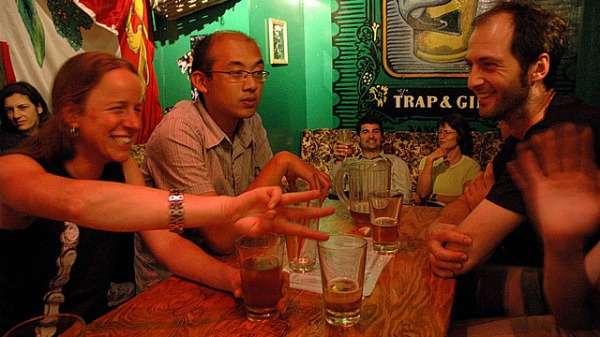Extended trading hours prompt spike in alcohol-fuelled injuries

Further extending the trading hours of Perth's licenced premises will result in more people with alcohol-related injuries presenting at metropolitan emergency departments, according to research from the National Drug Research Institute.
The findings coincide with the introduction of longer Sunday opening hours in WA last month, which extended closing time for pubs, taverns and small bars from 10pm to midnight.
Longer trading hours is a 'political hot potato', Drug Institute researcher Michelle Hobday says, but the findings of this most recent research show they will end in more injuries and that's worrying from a public health perspective.
She lead a team from Curtin University and the Curtin Monash Accident Research Centre which, for the first time, linked alcohol sales in Perth from both off-premise alcohol outlets (like bottleshops) and on-premise outlets (like restaurants and pubs), to alcohol related injuries requiring emergency department treatment.
As expected they found people in areas close to the CBD were at greater risk of injury because of the high concentration of licenced premises, Dr Hobday says.
This was particularly so in entertainment districts like Northbridge which drew large numbers of intoxicated people moving between licenced premises and more likely to be injured fighting.
What the researchers found most surprising was the risk of injury was eight times higher in areas where nightclubs and pubs had extended trading hours compared to when those same areas had normal trading hours.
They also found areas with high sales from bottleshops had a higher injury rate.
These results were based on data from 117 Perth postcodes over eight years from 2002, counting the injuries in different postcodes, the number of alcohol outlets and their sales and how many injuries resulted from alcohol consumption.
The study was unique because for the first time researchers had access to alcohol sales data not just the number of liquor outlets as with previous studies.
Because they had access to both sets of data, Dr Hobday says, her team could see the relationship between off-premise and on-premise outlets and make recommendations on how policy makers needed to consider different strategies for the different risks.
For example, they recommend authorities consider denying liquor licences to clubs and pubs close to other similar outlets and to not extending trading hours.
In relation to off-premise outlets, conditions may be needed on licences limiting the size and capacity of warehouse-style bottleshops with substantial discounting capacity, rather than simply controlling the number of them.
This article first appeared on ScienceNetwork Western Australia a science news website based at Scitech.















